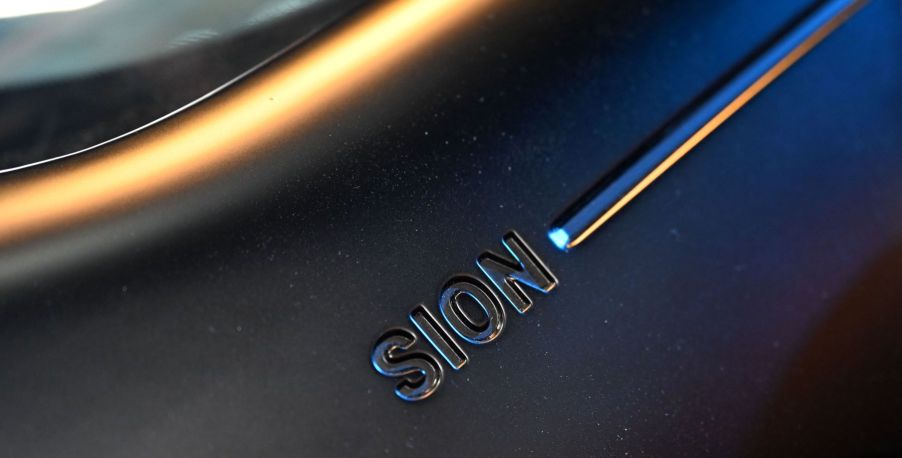
This Car Option Combines EV Technology and Solar to Create an Excellent Option
The race for new commercially viable and eco-friendly vehicles is fueling considerable innovation in the auto industry. While electric vehicles (EVs) are dominating the mainstream headlines, alternative options like natural gas vehicles (NGVs), biomethane-fueled vehicles (BioNGV), and hydrogen-powered fuel cell electric vehicles (FCEVs) are also in production and on dealer lots. There are even vehicles that convert solar energy into EVs to power them. That brings us to Sono Motors and the Sion.
Sono Motors: leading the way in solar-powered vehicles

According to The Street, one of the hottest companies in the eco-friendly vehicle space is Sono Motors, which specializes in solar-powered electric vehicles (S/EVs). The company is based in Munich, Germany, and has already begun to market its S/EV in major European markets.
Formerly a private company, Sono Motors went public in November 2021. It is currently burning through cash, dropping its initial stock price from $15 to around $1.50 today. However, many analysts are optimistic about its prospects. One reason is that Sono Motors occupies a unique niche in the market, which can help it stand out as consumers increasingly demand alternatives to gas-powered vehicles.
Despite its unique selling point, Sono Motors needs to deliver soon. The company must meet production goals, sell its vehicle successfully in Europe, introduce and sell its vehicle in the U.S. and other markets, and earn a profit. It’s still in the early stages of those efforts, so a drop in its stock price is not unexpected. The question is whether the company can fulfill its promise 12 to 24 months from now.
A look at the Sion, Sono Motors’ flagship vehicle
Not only does the company occupy a marketable niche, but it also appears to have a compelling product. The Sion is expected to retail for around $25,000, making it an affordable entry into the EV space. It will go into production in the summer of 2023 and be produced by Valmet Automotive.
TechCrunch notes that the Sion is a five-seater hatchback, and from a look at the concept car model that was recently displayed in New York, it is quite spacious. There’s a lot of headroom, legroom, and cargo space behind the back row. It sports a 10-inch touchscreen, is compatible with Android Auto, Apple CarPlay, and Bluetooth, and also includes a display with metrics about how the car is charging.
The Sion includes a 54 kWh lithium-ion battery that’s expected to provide 190 miles of range when fully charged. Its exterior is also lined with solar cells that collect and drive solar energy to the battery. The sun should be able to provide drivers with an extra 70 to 150 miles every week, depending on weather conditions. There’s even an outlet that lets you charge other equipment or EVs from your Sion.
Is the Sion the only solar electric vehicle in town?
Consumers have already started to reserve orders for the Sion, whose self-charging feature is undoubtedly compelling. Not only can it help consumers save on fuel costs, but because it uses less electricity, there is less of a strain on domestic electric grids, many of which draw energy from GHG-emitting sources.
However, the Sion is not the only option for those interested in a S/EV. Interesting Engineering notes that a Dutch startup known as Lightyear has designed a car capable of driving fully powered by the sun. It’s known as the Lightyear 0 and is currently in production. Unfortunately for the average consumer, it costs around a quarter of $1 million.
For working-class consumers, a new version of the Hyundai Sonata Hybrid has been outfitted with solar cells. The company estimates that between 30-60% of its battery capacity can be charged by the sun, and you can buy one for around $40,000. Elon Musk also plans to include solar panels in new iterations of the Tesla Cybertruck to extend its range.
Additionally, as per MotorTrend, Fisker Automotive plans to sell its Fisker Ocean electric SUV with a roof covered with solar panels expected to provide drivers with an extra 1,500 to 2,000 miles of range a year. These alternatives aren’t the only competition Sono Motors faces, so only time will tell if the Sion makes its mark in the S/EV space the way Tesla did in the EV market.


